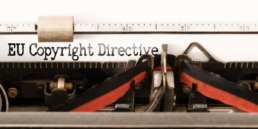How to integrate Audible Magic with Amazon IVS to identify copyrighted content
This blog was co-authored with Amazon AWS and was originally published on the AWS for M&E Blog on January 25th, 2024. The original blog can be found here: https://aws.amazon.com/blogs/media/how-to-integrate-audible-magic-with-amazon-ivs-to-identify-copyrighted-content/
Introduction
Amazon Interactive Video Service (Amazon IVS) from Amazon Web Services (AWS) is a managed live streaming service that enables businesses to build interactive experiences and applications to delight their customers with low-latency live video streams.
Customers have leveraged Amazon IVS and built user generated content (UGC) platforms for use cases ranging from live shopping to fitness, education, gaming, and live event experiences over live video. As users engage with these platforms built on top of Amazon IVS, there is the potential for both bad actors and well-intentioned users to stream copyrighted content. This may pose challenges for customers that need to receive and process takedown requests. Even with proper licensing, the use of copyrighted content may require attribution and reporting. In both cases, the ability to properly identify copyrighted content becomes important.
How Audible Magic Technology works
Audible Magic’s Emmy-winning automatic content recognition (ACR) technology presents a possible solution. Leveraging longstanding first-party relationships with thousands of record labels, music publishers, and other rights holders, the integration of Audible Magic’s ACR technology within Amazon Interactive Video Service may help to provide a protective shield for platforms and rights holders, while helping to establish a trustworthy environment for creators and consumers. Audible Magic’s solution enables UGC platforms to actively monitor and filter out unauthorized content while enabling the recognition and reporting of licensed content. It is designed to help reduce DMCA takedown notice disruptions and ensure accurate license administration.
Audible Magic’s ACR technology is tuned to identify copyrighted content embedded in user-generated media. When media is uploaded to a platform, the platform sends digital fingerprints of the media to Audible Magic’s information service, where they are compared to reference fingerprints submitted directly to Audible Magic by content owners. The service then returns results indicating a match or no-match condition. If matching content is found, the content owner’s business rules are returned by Audible Magic’s information service. Business rules express the content owner’s wishes to either block or allow content in a media sharing environment.
The next section of this blog post describes how to integrate Audible Magic’s ACR technology with Amazon IVS to enforce copyrights in live-streamed content.
IVS and Audible Magic end-to-end solution architecture

The simplest of the multiple ways to integrate Audible Magic’s ACR technology service with Amazon IVS.
When a stream begins, it generates a “stream started event” on the event bridge, which triggers an event rule. This trigger pushes a message containing stream information to a SQS queue, where an ECS service reads the message and starts scanning the stream with Audible Magic’s Toolkit. Whenever copyrighted material is identified, a JSON response file is generated with information about the match and is saved to an Amazon S3 bucket. Additionally, an email notification is sent pointing to the location of the JSON response file.
Handling toolkit responses
There are many ways you can use the responses from Audible Magic to take action on the detection of copyrighted content. For example: 1) sending notifications to an AWS Lambda function to display the currently playing song in an overlay on the screen, 2) muting portions of the stream that contain copyrighted content, or 3) automatically changing the song. Ultimately, Audible Magic’s Toolkit responses can extend out through a variety of applications and enable businesses to take actions that align with their content policies.
Email notifications can also help keep track of identifications that occurred during a stream. Further analysis of these identifications may aid with: 1) policies to prevent streaming copyrighted material in the future, 2) reporting on music usage, or 3) making informed edits to a video before VOD publishing.
Integrating Audible Magic – detailed steps
This section provides a walk through the steps to achieve the integration outlined in the end-to-end architecture diagram. If you would like to try these steps in your account, use the step-by-step guide with code samples linked here: AMToolkit identifyStream on AWS ECS
Integration prerequisites
Before any integration can take place, there are a few prerequisites that will allow for the entire system to work as intended. You will need:
- An Amazon IVS channel with streaming software setup. Refer to the Getting Started with Amazon IVS guide to learn how to create a channel and set up a live stream.
- An Audible Magic Toolkit package that contains the software needed to make identifications. You will be provided with an Audible Magic Toolkit package after you have signed up for Audible Magic Identification services.
- An Audible Magic Toolkit configuration file that informs the Audible Magic Toolkit software on how to perform according to your specifications. You will be provided with an Audible Magic Toolkit configuration file after you have signed up for Audible Magic Identification services.
To sign up for Audible Magic Identification services, please contact Audible Magic through its Contact page.
Once you have these prerequisites in place, you can proceed through the rest of this blog post to set up stream identification with Audible Magic. Let’s get started with the integration steps.
1) Create an Amazon S3 Bucket
Create an S3 bucket to hold the responses delivered by the Audible Magic toolkit.
A JSON response file is generated with information about matches found, and is saved to this S3 bucket.
2) Create an Amazon SQS queue
Create an Amazon SQS queue for messages about newly started streams. When a stream begins, it generates a “stream started event” on Amazon EventBridge, which triggers an Event Rule. A message containing stream information gets pushed to an SQS queue, where Amazon Elastic Container Service reads the message and starts scanning the stream with Audible Magic’s Toolkit.
3) Create an EventBridge event rule
Create an EventBridge Event Rule to generate a message when a new stream starts. This message will be sent to the SQS Queue.
4) Attach EventBridge event rule to SQS queue
With the SQS Queue and EventBridge Event Rule created, connect them so the EventBridge can send messages to the SQS Queue whenever an Event Rule is triggered.
5) Create toolkit wrapper application
An application needs to be written that interfaces with Audible Magic’s identifyStream binary, which is embedded within the Audible Magic Toolkit. This application will perform the following while parsing live-streamed content:
- Pull message from SQS queue
- Parse for channel-arn
- Parse for stream-id
- Retrieve stream playback URL using channel-arn
- Start scanning stream with identifyStream
- Monitor for Identification Response files
- Push Identification Response files to the S3 Bucket
Pull message from SQS queue
Messages about new streams will be pushed to the SQS queue created earlier. The Toolkit wrapper application will need to pull, parse, and delete these messages while taking the appropriate action on each.
Retrieve stream playback URL using channel ARN
After pulling the message from the queue, parse the “channel_arn” and use that to obtain the stream playback URL.
Start scanning stream with identifyStream
At this point, all necessary pieces to scan the live stream for copyrighted content using identifyStream are configured. Next, create a function that will run identifyStream using the appropriate parameters, and place the results in an accessible location.
Monitor for identification responses
Since identifyStream responds with matches in real-time during a broadcast, it’s important to monitor for results as they are generated. Identification results are saved locally; next, write a function that will monitor the directory for creation of new files. Files are saved in “/app/{stream_id}” directory.
Push Identification response files to S3 bucket
When new files (identification match results) are detected in the monitored directory, push these files to the S3 Bucket created earlier.
6) Create Docker image of the toolkit wrapper application
With the application now written, create a Docker image using Dockerfile and Docker command.
7) Upload the toolkit wrapper application Docker image to AWS Elastic Container Registry (ECR)
Create the Elastic Container Registry (ECR) repository in which the Docker image will reside.
Prior to pushing the Docker image to ECR, verify that the ECR repository can be connected via Docker using the username “AWS”. Then, tag your local Docker image with the appropriate AWS ECR location and push it to the ECR repository. Ensure the presence of the Docker image in ECR by listing the repositories with the appropriate name Ex. “am-stream-identification”.
8) Create an ECS task
Create an ECS task that defines the criteria needed to run the Docker image. Ensure the task definition contains information about: 1) the SQS Queue from which the application will read messages, 2) the S3 Bucket to which the application will save identification results, and 3) the image that the Docker container will use as its base image.
9) Create ECS service
Create an ECS service that will launch the ECS task. ECS service is named as “am-stream-identification-service”. The ‘desired count’ of this service is set to 1. This will automatically start a single instance of the am-stream-identification-task.
10) Adding email notification integration
Without having to check the S3 bucket for new JSON response files, you can set up email notifications using AWS Simple Notification Service (SNS) to email you whenever an identification match has is made. The email notification feature is optional and can be skipped.
Create a Simple Notification Service topic
The first step in setting up email notifications via SNS is to create an SNS topic. Allow S3 to publish to the SNS Topic. Once the SNS topic can receive notifications from the S3 bucket, add the push notification capability to the S3 bucket that is triggered whenever a new JSON response file is created in the identifications bucket.
Link email address to be sent notifications
In order to receive an email notification via SNS, link the email address that should receive the email notifications. Now, whenever a JSON response file is saved to the S3 bucket, an email message is sent (formatted in JSON) with information about the JSON file, including the location (key) and size.
11) Testing the Integration
With the ECS Service fully set up and running, you can test the Audible Magic identification service against a live stream. Start a stream to your Amazon IVS channel. A message should automatically be sent to the SQS queue that was set up previously. The Audible Magic identification service will scan the stream as long as it is active. Whenever the service finds a match to copyrighted content, a JSON response file with the match results will be produced and saved to the S3 bucket that was created earlier in this guide, within a folder named after the stream-id of the active stream.
Conclusion
In this article, we demonstrate how to set up a fully functioning automatic content recognition solution in just a few simple steps using Audible Magic’s ACR technology integrated with Amazon IVS. If you’re interested in validating this solution using a proof of concept, please visit https://www.audiblemagic.com/contact/.
About Audible Magic
For more than 20 years, Audible Magic has innovated B2B solutions in content identification (both music and TV/Film), music catalog fulfillment, and rights administration. Audible Magic powers billions of monthly transactions to serve customers all around the world. Its music identification services are used to help reduce the number of DMCA takedown notices and administer licenses for user generated content (UGC). Its catalog fulfillment services are a robust set of APIs that enable you to easily integrate and customize music experiences for your app. Audible Magic is a trusted intermediary and approved vendor between major platforms and rights holders (including music labels, distributors, publishers, collectives, and TV/Film studios). For more information, visit https://www.audiblemagic.com/.
Why is Music Such a Challenge for the Fitness App Industry?
The burgeoning Fitness App industry offers incredible workout experiences and a sense of community, but integrating music poses unique technical and licensing challenges.
The health and fitness app industry is growing leaps and bounds, with some predictions putting the market at US$ 18.7 billion by 2030. The growth is driven not only by better real-time data and equipment, but the worldwide pandemic is driving consumers to find a quality workout at home.
Combining high-quality equipment with classes is now a given for companies like Echelon, Hydrow, and CLMBR. These platforms strive to expand their offerings to their fan base with additional classes on and off the equipment - think yoga, strength training, and Pilates.
Instructors with a worldwide reach on these platforms are gaining almost cult followings. Participants accessing either a web streaming or an on-demand class expect an experience that delivers a workout and a sense of community and emotional connection.
Music: Got to have it
The underpinning of the experience is music. It sets the mood, drives the workout, and becomes part of the instructor’s brand. Class reviewers talk equally about the instructor and their choice of music-many reviewing the playlist before choosing a class.
Instructors who understand this build their class around music, whether it is an hour of EDM, 80s greats, or Miley Cyrus. A large catalog of premium music enables continued class creation and engagement. Recognizing this new vertical for music, record labels are partnering with platforms to create remixes and break new artists.
So, accessing music for these platforms is key to their business. The challenge is getting licenses and handling the overhead of administering the licenses.
Licensing: Infrastructure, Infrastructure, and More Infrastructure!
One of the first major hurdles that a platform needs to consider when approaching record labels is proof of technical competency.
Record labels and publishers want assurance that the platform can effectively manage their catalogs while also reporting and paying accurately. Unfortunately, these systems take a lot of licensing expertise, time, and technical resources to build.
The quickest way to move licensing negotiations forward is to partner with an experienced and full-service digital music management vendor before engagement. This service provider will often have the trust of the record labels, access to the masters, sub-licenses, and proven systems for:
- Receiving the music and continuous updates from the labels
- Identifying content to ensure appropriate use
- Linking the sound recording to the musical composition to clear tracks for use, and ensuring proper payment to the publisher(s)
- Reporting and Payments
Very few will provide all those functions, but those who do will make vendor management a lot simpler.
Licenses for Live Streaming and On-Demand
Generally, fitness platforms provide live-streamed classes which may or may not be stored, and they offer on-demand classes. Therefore, in consultation with a music industry expert or lawyer, these platforms will need to obtain appropriate licenses from labels, publishers, and collective management organizations (CMOs) covering the territories they will operate in.
Once they have secured licenses, the platform will have technical and service requirements to ensure only licensed tracks are used and to meet their ongoing licensing obligations as listed below:
- Establish an extensive catalog with matched sound recordings to musical compositions
- Host an approved catalog for use by instructors
- Identify licensed and unlicensed tracks using content identification technology
- Reporting, royalty administration, and payments to rights holders
It is hard enough to administer hundreds of thousands, and in some cases millions of tracks, but the difficulty increases trying to keep up with the continuous changes in catalog ownership. Platforms will need to identify tracks in their current on-demand classes and possibly replace songs when ownership has changed.
One can see that a platform hosting both live-streaming and on-demand classes will have many licensing obligations and will need a partner to help manage the process.
Let Audible Magic Help Manage Music on Your Platform
Audible Magic enables platforms to focus on growing their business by providing world-class proven music management solutions, including:
- Licensing Support - Understand what is cleared and not cleared.
- Fulfillment - Deliver cleared music to your platform now
- Content Identification - ID & track music on your platform
- Royalty Administration and Payment – Royalty reporting and payment to labels, publishers, CMOs and PROs
This blog is issued for informational purposes only and is not intended to be construed or used as general legal advice.
Are EU Member States Making Progress with Article 17?
With the June 7th, 2021 deadline looming for EU Member States to implement the 2019 EU Copyright Directive, many wonder about the timing of individual country transpositions or if there will be delays. The transposition is a process whereby each member state passes legislation to give force to the directive in that country. Although Covid-19 slowed progress, all major EU countries are making headway in their transposition process and are expected to meet the June deadline. The one significant exception is the UK, no longer part of the EU because of Brexit. The government has said it will not be implementing the directive.
To ensure the benefit of the new safe harbor provisions, online content-sharing services that make copyright works, such as music, publicly available in user-generated content will need to understand how and when the law is transposed by each member state. For example, The Netherlands has completed the transposition of the law and has specified that it will go into effect as of June 7, 2021.
We are watching this process carefully since some countries have considered adopting additional or different implementation measures in their transpositions. This could cause service providers to have a requirement to adjust their plans for each country they stream content to.
To learn more about how Article 17 will impact your business, we have included more resources at the end of this summary.
The Netherlands
The Netherlands became the first EU member state to implement the directive on December 28th. Their implementation is mostly a literal transposition of the directive’s provisions, but it also includes a provision that allows the Ministry of Justice to provide further rules on the application of the Article 17 implementation.
Germany
On February 3rd, Germany’s government approved their latest proposal, which was revised in response to feedback from rightsholders and platforms. This draft states that without a corresponding license, platforms must block uploaded copyrighted content; however, short excerpts are presumed permitted by law and may not be blocked by automatic means. The law is scheduled to be debated in the legislature in March.
Austria
The Austrian Ministry of Justice completed the first proposal in December, which borrows elements from previous German proposals, including a direct remuneration right for creators, users’ ability to pre-flag uploads as legitimate, and a threshold that protects minor uses from automated blocking.
France
France passed an authorization law on November 18th, allowing them to implement provisions of the directive by administrative decree. This law specified that the decree implementing Article 17 must be issued 6 months from its passing, which would be April 18th. France's draft law proposes a literal adaptation of Article 17.
Finland
Finland’s proposal relies on the mandatory use of ACR (Automated Content Recognition) technology by platforms. Rightsholders would be required to review infringing uploads before issuing a blocking request, and users would be able to challenge blocks through an independent alternative dispute resolution mechanism.
Denmark
Denmark announced that it would implement Articles 15 and 17 during the parliamentary year and the rest of the directive after the summer. Like the Netherlands, the Denmark transposition is a literal adaptation of the EU Copyright Directive.
The UK Copyright and Creative Economy Centre, based at the University of Glasgow, maintains possibly the most comprehensive and up-to-date resource on national implementation at https://www.create.ac.uk/cdsm-implementation-resource-page/.
Check back for more updates on Article 17 in the coming months. The following resources will help you understand how Article 17 may impact your business.
- What is Article 17?
- Take our A17 assessment to see how Article 17 affects your business.
- Understand how small social networks are impacted by the copyright directive.
This blog is issued for informational purposes only and is not intended to be construed or used as general legal advice. Please contact the author(s) or your Audible Magic Corporation contact if you have questions regarding the currency of this information.
All information is accurate as of March 8, 2021
Sources
https://www.twobirds.com/en/in-focus/copyright-directive
http://www.xinhuanet.com/english/2021-02/04/c_139719400.htm
Takwene Protects Artists’ Rights and Manages Their Catalog with Audible Magic’s RightsRx™ Plus
The award-winning MCN and distributor supports
creators from production to rights protection.
The company's name, Takwene, the Arabic word for “create,” reflects its commitment to providing comprehensive support for artists, often musicians, to produce and succeed online. The Middle Eastern focused multi-channel network (MCN) and distributor launched in 2011 just as the Arab Spring began. Undaunted by the crisis, the Takwene development team focused on building their music distribution platform. The investment paid off as they became the first and only YouTube Certified Partner in the region shortly thereafter.
Continued growth drives the search for Automated Content Recognition Solutions
In 2015, Takwene began registering their audio and video with Audible Magic to protect against unauthorized use on UGC hosting platforms. In 2019, Takwene became the biggest music library in the Middle East, hosting over 100,000 audio and video assets, including Bedouin and Libyan music. The company was also hosting a wide variety of content from creators in the United States and the European Union.
The growing company needed a solution to prevent uploads of unauthorized copyrighted material to their digital service providers (DSP) and to proactively manage ownership conflicts in their international catalog.
Accuracy, scalability, and an international registry were key
Because of the variety of music and the scope of their growing catalog, Takwene needed an automatic content recognition (ACR) vendor that had an extensive international music registry combined with a highly accurate and scalable service to minimize costly human intervention. Although they looked at several ACR providers, Audible Magic’s RightsRx Plus service provided the best match for their requirements.
Prevent the upload of unauthorized copyrighted content and identify catalog conflicts with RightsRx Plus
RightsRx Plus compares a submitted track against an extensive music registry and responds with applicable ownership information to help maintain a catalog free of unauthorized copyrighted content and conflicts. This quick scan helps distributors maintain their status with DSPs and resolve ownership issues with other rightsholders.
“We needed a service that would minimize human intervention, which can be costly. The solution had to be highly accurate and scalable for our expanding business, and accommodate the metadata complications when encoding a diverse catalog merging folkloric Bedouin, Oriental & Nubian Music.” said Ayman Konna, CEO of Takwene. “Audible Magic easily fit the requirements, and the team appreciated the quick integration. We were scanning tracks within a day.”
Challenge: Prevent copyrighted material from being uploaded to DSPs as well as manage conflicts in their catalog. Handle RTL and different metadata encoding.
Solution: Audible Magic’s RightsRx Plus
Key Requirements: Extensive international registry, minimal manual intervention, scalability, accuracy.
Frequently Asked Questions regarding Audible Magic’s Acquisition of MediaNet’s Business
On Monday, January 11th, 2021, Audible Magic and SOCAN announced that the companies had entered into an agreement to transfer SOCAN’s content fulfillment and rights administration business to Audible Magic.
Understandably, many content partners and customers of both MediaNet and Audible Magic have questions about what this means to their day-to-day interactions and services they may have been receiving from each company. We hope that the information below will provide some guidance, but always, feel free to reach out to us for further information. Both teams remain fully committed to our content partners and customers.
When does this acquisition go into effect?
The acquisition will be effective as of January 6, 2021.
Why is Audible Magic making this acquisition?
This acquisition enables Audible Magic to offer a unique one-stop-shop solution for digital service providers and UGC hosting platforms looking to manage copyrighted content. Audible Magic will be able to offer licensing, rights management, and royalty administration as well as industry-leading content identification services.
What are the benefits to Audible Magic customers?
Current Audible Magic customers will now have access to a full suite of content management services including licensing, rights management, royalty administration, and media fulfillment.
What are the benefits to MediaNet customers?
MediaNet customers will gain access to the gold standard in content identification services so important for accurate attribution of copyright, licensing, rights administration, and reporting.
Will there be any changes to the services provided to MediaNet or Audible Magic customers?
Both Audible Magic and the MediaNet teams remain committed to all existing customers with the same level of support.
Are there changes to my contacts at MediaNet or Audible Magic for business or technical issues?
We do not intend to change your primary business contacts currently. If you do have any questions, please contact us at [email protected]
Will there be changes in how content partners should deliver content feeds?
There will be no immediate changes in how a content partner sends feeds to either Audible Magic or MediaNet. However, we will be looking into options to make the process easier for our content partners moving forward.
Will there be any changes to the processing of royalty payments or accounting reports?
The processes currently in place will continue as before the acquisition. As the two companies merge, we will be looking for opportunities to provide improved processes to benefit our content partners and customers. If you have any questions, please contact us at [email protected].
Are there changes planned to MediaNet customer billing and invoicing for services?
Yes, invoices will be issued with an Audible Magic logo starting in January. You will have access to your invoices and statements via an online portal. You will receive a link via email to set up your account within the portal, as well as a user guide for questions and assistance. Remittances should be made per the instructions on the invoice.
EMS and Audible Magic Tackle Industry-Wide Issue of Verifying Music Rights Ownership
Audible Magic’s RightsRx enables EMS to proactively protect artists from fraudulent ownership claims
Los Gatos, Calif. – Nov. 17, 2020 – The Encoding Management Service (EMS), a technology service provider for digital music, audiobooks and eBooks, announced it has partnered with Audible Magic, the gold standard for content identification and leading provider of rights management and automatic content recognition (ACR) solutions. EMS is using Audible Magic’s RightsRx™ to prevent an industry-wide concern of fraudulent ownership claims by bad actors, attempting to steal revenues from the legitimate artists and rightsholders.
“There’s no question that Audible Magic is the partner of choice to help strengthen our rights management procedures, given their industry standard trusted and proven technology,” said Chris Bornefeld-Ettmann, EMS managing director. “We’re thrilled at how easily and quickly we implemented RightsRx into our existing workflow.”
Audible Magic’s RightsRx enables EMS to resolve ownership conflict claims prior to upload by identifying fraudulent submissions, as well as catalog conflicts when artists submit through multiple distributors.
“EMS is a major industry player and their effort underlines the continued trend of distributors proactively managing their catalogs to prevent unauthorized music from entering the digital music ecosystem,” said Vance Ikezoye, president and chief executive officer at Audible Magic. “We’re the best solution in the industry to ensure distributors can keep their catalogs clean from unauthorized content.”
Every month, Audible Magic searches billions of files looking for copyright content registered by over 140,000 record labels and music publishers. Its comprehensive reference registry contains tens of millions of registered works representing music from over 150 territories, with hundreds of thousands of new tracks added each month. Search results operate on files as short as five seconds and typically complete in one second or less, with virtually zero false positives.
For additional information, visit https://www.audiblemagic.com/rightsrx/.
About Audible Magic
For more than 20 years, Audible Magic has innovated solutions to identify content, manage rights, and monetize media. Audible Magic’s Emmy-winning automatic content recognition (ACR) technology powers billions of transactions monthly. The Silicon Valley pioneer is the trusted intermediary among rightsholders (including labels, studios, distributors, publishers, and collectives) and major platforms. For more information, visit https://www.audiblemagic.com/.
About EMS
The Encoding Management Service - EMS GmbH is a technology service provider for the digital entertainment industry. For more than 10 years now, EMS’ logistical solutions for digital contents enable fast and secure ripping, encoding and delivery of audio, video and eBook data to online retailers, aggregators and other services worldwide. EMS is one of Spotify’s recommended Delivery Platforms and listed Encoding House with Apple. EMS’ clients’ roster includes renowned distributors such as GoodToGo, Indigo, mbassador, TBA, Tonpool Digital, wordandsound and ZEBRALUTION. EMS is a member of the ZEBRALUTION Group since July 2019.
Contact:
Adriana Saldaña
Sterling Communications
[email protected]
+1 408-395-5500
Innovative Music Licensing Frameworks Will Be Key To UGC-Powered Music Expansion - Forbes
“Traditionally many people look at UGC as a promotional tool used to generate demand for music, says Audible Magic founder and CEO Vance Ikezoye, who has more than 20 years of professional experience in the music industry. “But it’s really a new form of content with big potential for platforms and content owners…people go to TikTok, not for the music, but for the creativity and creation opportunity.”
Read the full article by Forbes here.
ShareChat taps Audible Magic for copyright-spotting tech - Music Ally
Indian social media company ShareChat has become the latest customer for Audible Magic’s rights management and content recognition tech.
It will be used to “proactively address both licensed and misuses of copyright media” on ShareChat’s app, which has more than 160 million monthly active users.
Read the full article by Music Ally here.
ShareChat partners with Audible Magic to identify copyright content - The Economic Times
Audible Magic hosts a comprehensive reference registry containing over 40 million registered works from global and local music labels and is a leading tool for content identification. The partnership will enable ShareChat, which operates in 15 local Indian languages, to proactively address both licensed and misuses of copyright media.
Read the full article by The Economic Times here.
ShareChat Partners with Audible Magic to Manage Licensed and Unlicensed Use of Music - Yahoo News
Sharechat, India’s largest Indian social media platform, announced it has partnered with Audible Magic, the leading provider of rights management and automatic content recognition (ACR) solutions. ShareChat chose Audible Magic for its comprehensive reference registry containing over 40 million registered works representing global and local music from across the world. Audible Magic is considered the gold standard for content identification and will enable ShareChat to proactively address both licensed and misuses of copyright media.
Read the full article by Yahoo News here.








